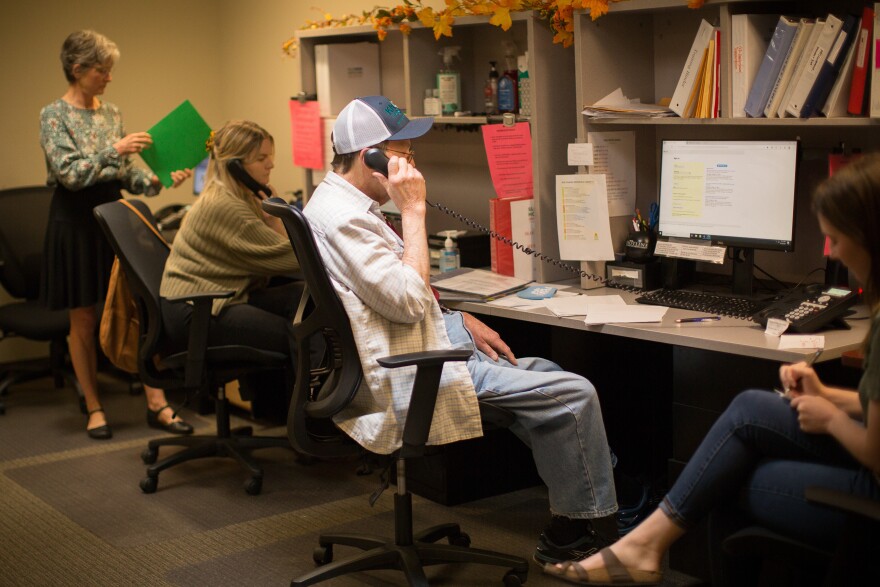The 10-digit National Suicide Prevention Lifeline has now been shortened to 988 as a part of President Biden’s National Mental Health Crisis strategy, and local advocates say it's a step in the right direction.
The National Suicide Hotline Designation Act assigned 9-8-8 as the universal national suicide prevention and mental health crisis hotline by the Federal Communications Commission. Under this Act, the FCC requires the United States and the five major U.S. Territories to activate 988.
“[The hotline] offers 24/7 access to trained counselors who can help people experiencing suicidal substance use or other mental health crises," said Bonnie Preston, the Regional Director of the Health and Human Services for Region 9, which includes California.
Preston said the Suicide and Crisis Lifeline has been traditionally underfunded, so the transition to 988 is a major development.
“The Biden-Harris administration has really made a huge commitment in upping the dollars that are going towards this," she said.
Funding allocated to the lifeline has now increased from $24 million to $432 million. According to a press release from Health and Human Services, the federal investments will “scale up crisis centers and back-up center capacity, and to provide special services, including a sub-network for Spanish language speakers.”
In the same press release, Secretary Xavier Becerra said, “988 is more than a number, it is a message: we’re there for you. Through this and other actions, we are treating mental health as a priority and putting crisis care in reach for more Americans.”
Preston said there has been a spike in the number of calls since the start of the hotline.
“Since this easier number has been implemented in mid July, calls have increased by 45% nationally. So people are getting the information, they're using it and they're getting the help they need," she said.

Under the Lifeline’s Imminent Risk Policy, crisis center staff work to provide support and assistance for people at risk in the least restrictive setting possible, only calling in emergency services if it's absolutely necessary.
Preston said that 98% of calls that come in to the new lifeline successfully de-escalate and provide resources for the crisis at hand without calling in emergency services.
In the future, Preston said 9-8-8 will connect with local crisis intervention organizations across the country, including the Central Coast Transitions-Mental Health Association (T-MHA).
“It’s so easy, the whole idea that you can be just dialing those three numbers, as you would with 911 or 211," said Michael Kaplan, T-MHA's Communications Engagement Director.
T-MHA has over 40 programs along the Central Coast, which it says work to eliminate stigma and promote recovery and wellness for people with mental illness through job placement, housing, community, and family support services.
While the act applies on a national level, Kaplan said the lifeline combined with some of T-MHA’s resources will provide more ways to promote recovery and wellness for the Central Coast community.
“We see 9-8-8 and Central Coast Hotline working really nicely in parallel and ultimately we think we’ll end up being a part of the network, which will be even better," he said.
Kaplan says the pandemic has had a strong negative impact on the mental wellbeing of people across the country. Since the start of the pandemic, the Central Coast Hotline run by T-MHA has received a massive increase in reports of anxiety and depression.
“It wasn't that long ago where we didn't know whether we could venture out of our houses and go see our grandparents.”
Despite this strain on the public’s mental health, Kaplan said COVID-19 highlighted the demand for mental health support and why people benefit from having more resources.
“Everybody is realizing mental wellness is just as important as primary care health," he said. "It's very much in the consciousness now. When that happens, what follows is a demand for services and people need to know that there are resources or referrals that are available to them.”
If you or someone you know is experiencing a mental health crisis, you can call or text 9-8-8 or visit 988lifeline.org or reach out to the Central Coast Hotline at (800)-783-0607.




